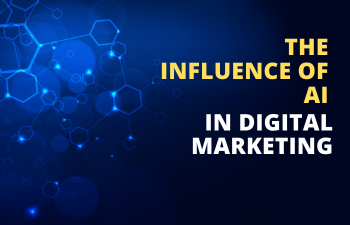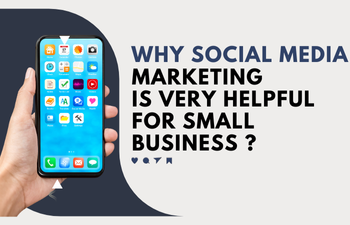 Digital Marketing
Digital Marketing
The Influence of AI in Digital Marketing
The Influence of AI in Digital Marketing, Will machines dominate digital marketing in 2024?
In the ever-changing landscape of digital marketing, artificial intelligence (AI) has grown in importance in the digital marketing agencies. From personalized suggestions to predictive analytics, AI is changing the way organizations interact with their customers. But what precisely is the function of AI in digital marketing, and will machines take over the marketing world by 2024? Let us go into this exciting issue and consider the possibilities.
Step 1: Understanding the Fundamentals of AI in Digital Marketing.
AI comprises a variety of technologies that allow machines to execute tasks that would normally need human intellect, such as learning, reasoning, and problem solving. In digital marketing, AI is used to analyze data, automate processes, and personalize customer experiences. Automation has become a crucial component of modern digital marketing strategy. Businesses use automation solutions to streamline processes, enhance productivity, and deliver personalized experiences at scale, ranging from email marketing automation to customer care chatbots.
Step 2: Personalized Content Recommendations.
AI plays an important part in digital marketing by providing personalized content recommendations. AI systems evaluate user behavior and preferences to provide personalized content that resonates with each individual, hence increasing engagement and conversion rates for a digital marketing agency.

Step 3: Use Chatbots for Customer Engagement
AI-powered chatbots give consumers with quick support and help by answering questions, addressing difficulties, and leading clients through the sales funnel. Chatbots improve customer happiness by providing timely responses and streamlining the support process.
Step 4: Using Predictive Analytics for Marketing Insight
Predictive analytics, enabled by AI, allows marketers to estimate future patterns and results using historical data and machine learning algorithms. By examining patterns and behaviors, marketers may predict customer demands, optimise efforts, and make data-driven decisions which can have a positive impact on their business.
Step 5: Programmatic Advertising Optimization
AI-powered programmatic advertising platforms automate ad placement purchase and optimization in real time. Marketers can target the correct audience, optimize ad spend, and increase the ROI of their advertising campaigns by examining audience data and performance indicators.

Step 6: Balancing Automation and Human Touch.
While AI has numerous benefits for digital marketing, it is critical to strike a balance between automation and human interaction. Human creativity, empathy, and strategic thinking are critical for developing appealing marketing strategies and connecting with customers.
Finally, AI is expected to play an increasingly important role in determining the future of digital marketing. While computers may not completely dominate the marketing industry by 2024, AI technologies will surely progress and proliferate. Digital marketers must embrace AI as a valuable tool for improving their capabilities and delivering extraordinary results to their clients while keeping a human-centered marketing approach.
What are your ideas on the use of AI in digital marketing, and do you believe machines will take over the marketing world by 2024? Please share your observations and predictions in the comments section below!


